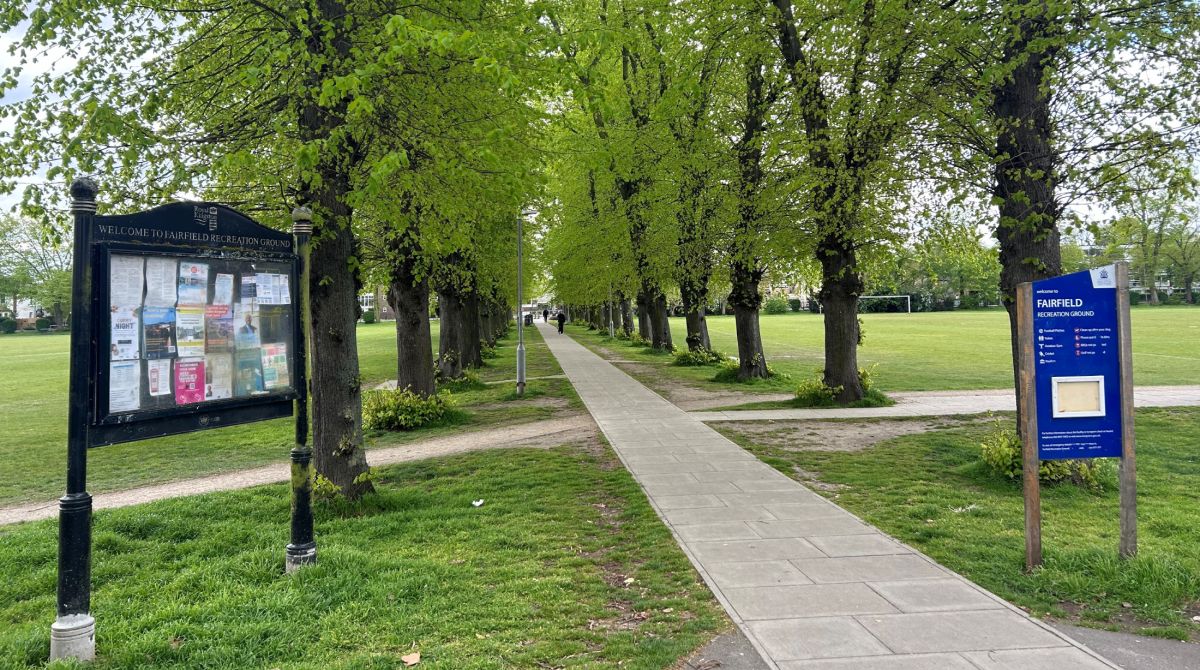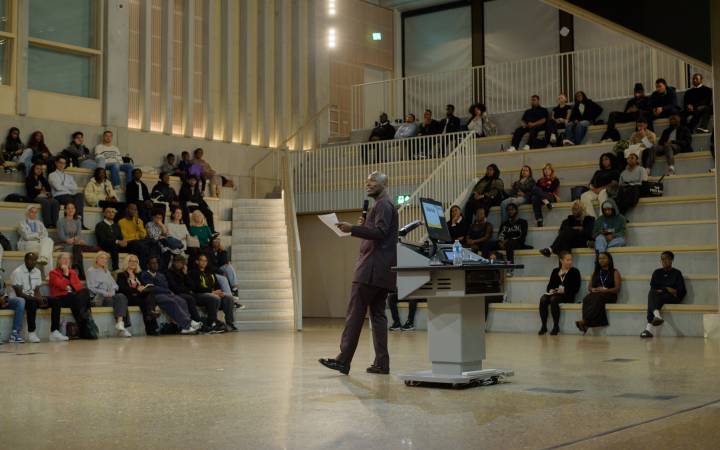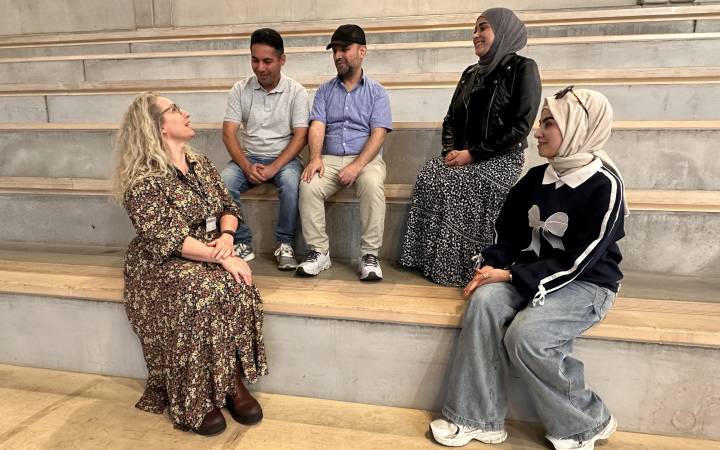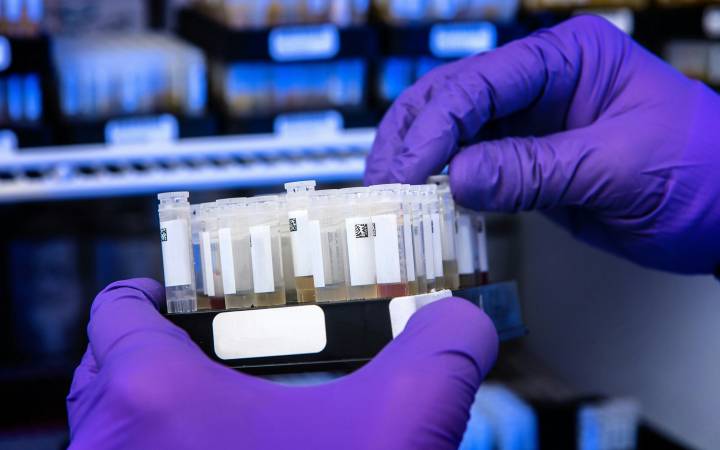Kingston University and Camberwell, Chelsea and Wimbledon Colleges of Arts awarded £1.25 million for project addressing inequalities affecting marginalised communities in South West London
Posted Thursday 25 April 2024

Academics from Kingston University and Camberwell, Chelsea and Wimbledon Colleges of Arts have joined forces to work with communities across South West London to boost access to culture and green spaces for people from minority ethnic backgrounds.
The institutions are part of the Abundance Project, an arts and health sector collaboration that will see them work alongside community organisations to improve opportunities for inclusivity and address inequalities in mental health.
The project has been awarded £1.25 million from UK Research and Innovation (UKRI), as part of a pool of funding to address health disparities. It was initiated by Kingston University Professor Tushna Vandrevala, Professor of Health Psychology and UAL's Dean of Research and Knowledge Exchange at Chelsea, Camberwell and Wimbledon Colleges of Arts, Professor Maria Chatzichristodoulou.
Running for three years, the Abundance Project will be jointly led by Refugee Action, Kingston Voluntary Action, the Asian Resource Centre Croydon, Connect North Korea and the Reach Foundation, with additional involvement from Kingston Council. Members of the partnership will ensure the project reflects the lived experiences of residents in more marginalised parts of South West London.
Professor Vandrevala said the project would take a different approach to traditional methods of addressing health inequalities. "The project champions an abundance mindset – recognising the wealth of skills, capabilities and resources that already exist within diverse communities," she said. "The Abundance Project confronts the enduring intersection of historical and institutional racism, the unprecedented strains on mental health services and resounding calls for social justice epitomised by the Black Lives Matter movement — a reminder that no individual should ever be left behind, no matter who they are or where they live."
Professor Chatzichristodoulou, who was previously part of the leadership team at Kingston School of Art, said the project would combine arts, health, environmental and social science research to empower communities. "The Abundance Project will create opportunities for Black, minority ethnic, refugee and other under-served communities living in the poorest areas of South West London to benefit from the abundant cultural and green opportunities in the area," she said. Research had already demonstrated how visiting galleries, museums and parks could benefit mental health and wellbeing, Professor Chatzichristodoulou added.
Kingston Voluntary Action chief executive officer Sanja Djeric-Kane said the Abundance Project would be an invaluable resource. "This research will help address inequalities that we see all the time, such as racial discrimination, lack of trust in health services, communication challenges, digital exclusion, cultural barriers and social determinants of health, such as housing, education and employment," she said.
The project forms part of the Mobilising Community Assets to reduce Health Inequalities programme led by UKRI. It seeks to tackle entrenched and longstanding health inequalities in Britain's poorest communities by exploring how health systems can collaborate more effectively with communities.
- Find out more about research at Kingston University.
- Find out more about the Centre for Applied Health and Social Care Research.
Contact us
General enquiries:
Journalists only:
- Communications team
Tel: +44 (0)20 8417 3034
Email us



